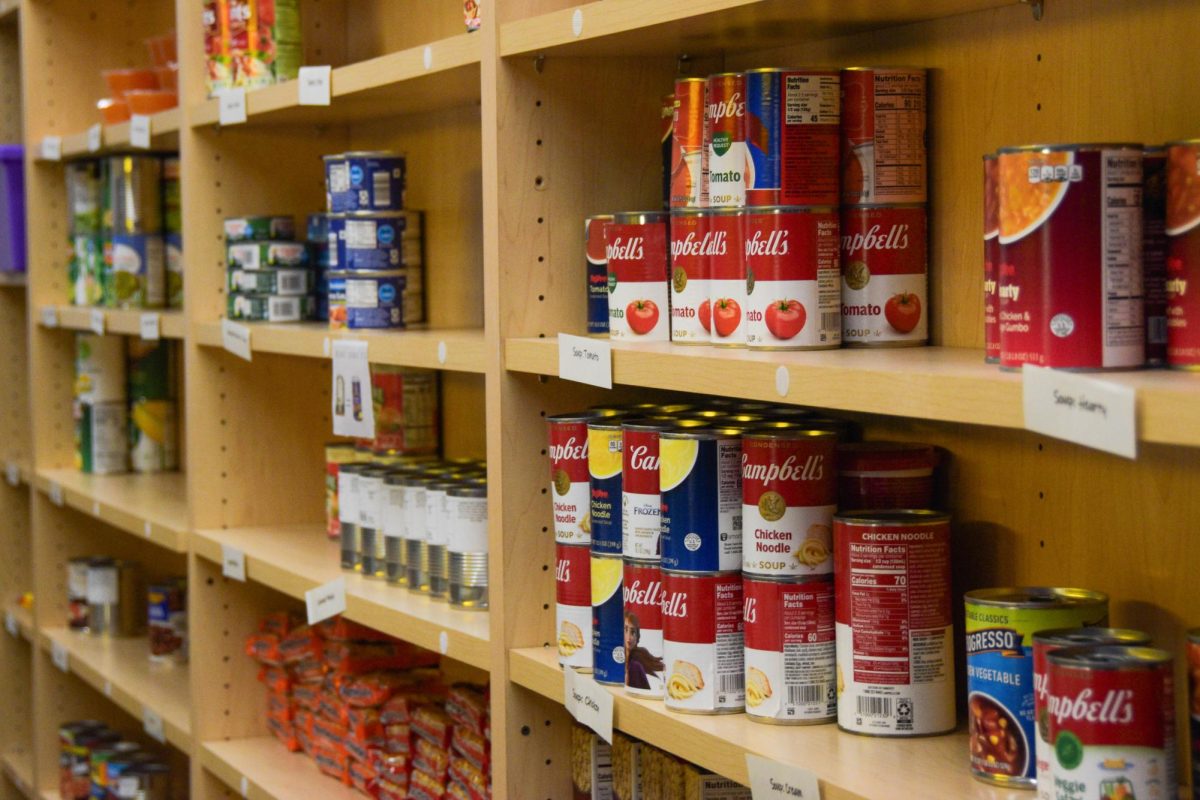Hannah Jones/Winonan
College is a first taste of life as an adult for many students living on campus.
Besides managing their own studies, jobs, commutes and margins of acceptability between showers, students must buy their own food for the first time.
This means that the vast majority of students spend their freshman years living off of Kwik Trip milk, microwavable meals and Taco Bell.
When it comes to planning meals, there’s a learning curve for everyone. Just ask, Steven Schauer, current general manager of the Bluff County Co-Op. For a while in his college years, he subsisted on peanut butter, bananas and Ramen Noodles.
College students, as a group, are not known for their health-conscious meal choices. When we’re not on a cafeteria plan, we’re running on fast food and cheap, processed meals from the nearest Hyvee or Walmart. It isn’t difficult to see the appeal: they’re close, they’re easy and they’re cheap. However, they also come with a catch.
These processed foods, Ramen and the like, are all mass-produced and shipped from a processing plant, and come with environment-damaging packaging and body-damaging additives. According to Schauer, many of our country’s most pervasive medical problems—diabetes, high blood pressure and food allergies—may be the result of eating food with too many synthetic ingredients and chemicals.
It’s not as though these foods are hard to avoid. Pervasive as these foods are in most super market chains, just blocks away from campus, Winona State University students have access to the Co-Op, which deals exclusively with the healthy, organic, local and diet-conscious side of the food spectrum.
Which begs the question: why isn’t everyone shopping there?
Schauer said that most students are put off the Co-Op because of the price of some organic and local foods. The products at the Co-Op are not subsidized, so some of the prices tend to be a little steeper. Most of the students who shop there anyway do so because they are restricted to a certain kind of diet: vegan, gluten-free or weight training.
Liz Reach, a Co-Op shopper and employee, has another theory.
“It’s because they’re lazy,” she said.
Many of the Co-Op’s products do not come in the same microwavable, ready-to-eat form as the convenience meals college students are used to. This means it takes a little know-how—and yes, a little effort—to prepare them. For most college students, that’s a tall order.
“I’d say that 95 percent of students struggle in the kitchen,” Schauer said. “Even established adults struggle.”
“And they think it’s too expensive…” Reach said, “But it’s almost cheaper to buy foods in bulk here.”
It’s true: products like flour and other grains can be bought at any quantity, without the expensive packaging. That makes them a lot cheaper, and easier to use by their freshness date without the added preservatives.
The Co-Op recognizes some of the difficulties students have with getting the full benefit of the store, and so plans to make the healthy habit of shopping there more accessible for college students on a budget.
According to Schauer, the Co-Op is looking into starting a program that would make its products purchasable on Purple Pass. Besides that, the Co-Op already has a few students who signed up to shop on declining balance, similar to a meal plan.
The most important outreach the Co-Op does, Schauer said, is educating a campus full of newly independent college students on how to eat with their health in mind. The Co-Op offers several cooking and nutrition courses, many of which are free. Students can also find plenty of expert help from the store attendants, who are always willing to share advice on what foods to buy for a healthy, sustainable lifestyle.
Schauer said that in spite of busy lifestyles and kitchen inexperience, it isn’t that difficult for students to learn how to shop, cook and eat well.
“The majority of foods people eat and find comfort in are not that difficult to make—just 20 to 30 minutes,” Schauer said. Learning how to use that time and invest in a wholesome, healthy meal, he said, is an essential skill.
Schauer urged those students still living on Ramen to give the Co-Op a try—to make a choice for a healthier body, environment and local community by supporting a business that supports all three.
Contact Hannah at [email protected]


































































